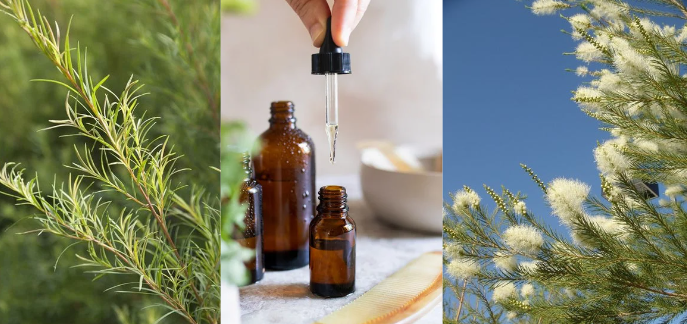Introduction:
Tea tree oil, extracted from the leaves of the Melaleuca alternifolia tree native to Australia, has garnered widespread acclaim for its potent antiseptic properties. Traditionally used by the Aboriginal Australians for centuries, this essential oil has now become a staple in natural health and skincare worldwide. This article delves into the scientifically backed benefits of tea tree oil, its uses, and the best practices for incorporating it into your natural health regimen.
What is Tea Tree Oil?
Tea tree oil is known for its strong, fresh, camphor-like scent and its powerful antiseptic, antifungal, and antimicrobial properties. The oil is extracted through steam distillation of the tree’s leaves and contains compounds like terpinen-4-ol that are responsible for its healing abilities.
Health Benefits of Tea Tree Oil
- Antimicrobial and Antiseptic Properties: Tea tree oil is effective in killing bacteria, viruses, and fungi, making it excellent for treating wounds and preventing infection.
- Acne Treatment: Due to its ability to combat bacteria and reduce inflammation, tea tree oil is a popular choice for treating acne.
- Fungal Infections: It is effective against various fungal infections, including athlete’s foot, nail fungus, and yeast infections.
- Skin Health: Tea tree oil can soothe and treat skin conditions like psoriasis, eczema, and insect bites.
- Respiratory Relief: When inhaled, it can help relieve congestion and symptoms of respiratory conditions like colds and bronchitis.
Using Tea Tree Oil
- Topical Application: For treating skin issues or wounds, dilute tea tree oil with a carrier oil and apply it directly to the affected area.
- Inhalation: To alleviate respiratory issues, use tea tree oil in a diffuser or inhale it directly from the bottle or a steam bath.
- Household Cleaner: Its antimicrobial properties make it a great addition to homemade cleaning products for disinfecting surfaces.
Safety and Considerations
Tea tree oil should be used with caution as it is potent and can cause irritation or allergic reactions in some individuals, especially when used undiluted. Always perform a patch test before using it widely, and dilute with a carrier oil for topical applications. Ingesting tea tree oil is not recommended, as it can be toxic.
Conclusion:
Tea tree oil is a versatile and powerful natural remedy with a range of applications from skincare to household cleaning. Its antiseptic, antifungal, and antimicrobial properties make it a valuable addition to any natural health toolkit. By understanding how to use tea tree oil safely and effectively, you can harness its benefits and support your health and well-being naturally.

